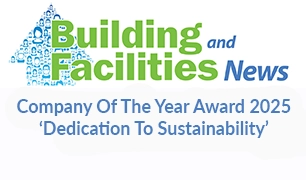Conceived to reduce administrative burdens, raise awareness of energy efficiency, reduce bills, and save carbon, the Streamline Energy & Carbon Reporting (SECR) is a new, mandatory reporting regime that will replace Carbon Reduction Commitment (CRC) and greenhouse gas (GHG) reports. As a public document, SECR will show what companies are, or are not doing, to reduce their emissions. Any failure to address the rising cost of fuel through reduced use will be clear to see. The report will also show how companies are reacting to the risk of climate change, so there will, for the first time be an additional reputational risk if any organisation fails to reduce its emissions to counter climate change.
Does SECR apply to your business?
A large number of companies and Limited Liability Partnerships (LLPs) will be required to report as part of SECR. The framework is mandatory for ‘large’ companies (under the Companies Act 2006) that meet two of three set benchmarks:
- More than 250 employees
- More than £36 million in annual turnover
- An annual balance sheet larger than £18 million
SECR would extend the number of companies that report information in annual reports from ~1,200 to ~11,900, similar to the Energy Savings Opportunity Scheme (ESOS) organisational reporting. This is also a climb from the ~4,000 companies currently required to comply with CRC regulations.
The suggested vehicle for reporting is company accounts and a UK-wide approach is in line with other existing initiatives such as ESOS and mandatory GHG reporting.
Organisational reporting will be similar to ESOS in that:
UK subsidiaries, that qualify for SECR in their own right, will not be required to report where they are covered by a parent’s group report, although they may report individually on a voluntary basis.
Companies that are not registered in the UK (non-UK incorporated) are not obliged to file annual reports at Companies House, and will, therefore, fall outside the scope of the mandatory SECR framework.
However, where a parent company is not registered in the UK, but has subsidiaries that are registered in the UK, these subsidiaries, if qualifying for SECR in their own right, would need to report.
It has already been announced that to compensate for the removal of approximately£790m in annual CRC tax revenues the Climate Change Levy (CCL) has been noted for increase in 2019. SECR legislation has passed through Parliament into law and the mandatory report will be linked to taxations with the new the tax rates already set out:
Taxable commodity |
Rate From 1 April 2018 |
Rate From 1 April 2019 |
Change |
Electricity (£ per kilowatt hour (kWh)) |
0.00583 |
0.00847 |
+45.28% |
Natural gas (£ per kWh) |
0.00203 |
0.00339 |
+67.00% |
LPG (£ per kilogram) (kg) |
0.01304 |
0.02175 |
+66.79% |
Any other taxable commodity (£ per Kg) |
0.01591 |
0.02653 |
+66.75% |
Climate Change levy Rates 2018-2019
Who is exempt?
- De-minimis threshold of 40,000 kWh, for companies using low levels of energy to be exempt from reporting, similar to ESOS (this equates to approximately 500organisations).
- Unquoted companies where it would not be practical to obtain some or all of the SECR information.
- Disclosure of information which the Directors think would be seriously prejudicial to the interests of the company.
- There is no exemption for energy used in other schemes – e.g. Climate Change Agreements(CCA) / EU-Emissions Trading Scheme (ETS).
- There is no exemption for Limited Liability Partnerships (LLPs), as they are required to report under SECR through an equivalent to a directors’ report (this equates to approximately 230 large LLPs).
- Public sector organisations are currently exempt, but there is an expectation that they will adopt SECR as a standardised environmental planning and reporting tool.
UK quoted companies registered in the UK will be required to:
- Where practical, disclose Scope 1 & 2 emissions according to the GHG methodology (Scope 3 will remain voluntary). Electricity, gas and transport will as a minimum require reporting and an intensity metric is required in their annual reports which, where practical, will also report on global energy use.
- Provide a narrative commentary on energy efficiency action taken in the financial year, though they won’t be required to specifically disclose ESOS recommendations and how they have been taken forward (although they can do so). This will apply to both quoted, large unquoted companies, and large LLPs. The idea behind disclosing annual energy efficiency actions is to incentivise action outside the four-yearly ESOS cycle.
- Having completed the report it will need to be audited to a standard that meets the requirements of the Financial Reporting Council (FRC) and be signed off by the Board. For private companies the report must be registered with Companies House.
Organisations will report under the CRC for the last time at the end of July 2019 and surrender allowances for emissions from energy supplied in the 2018-19compliance year by the end of October 2019. The new tax will be collected as part of the Climate Change Levy payments by an organisation’s supplier.
















